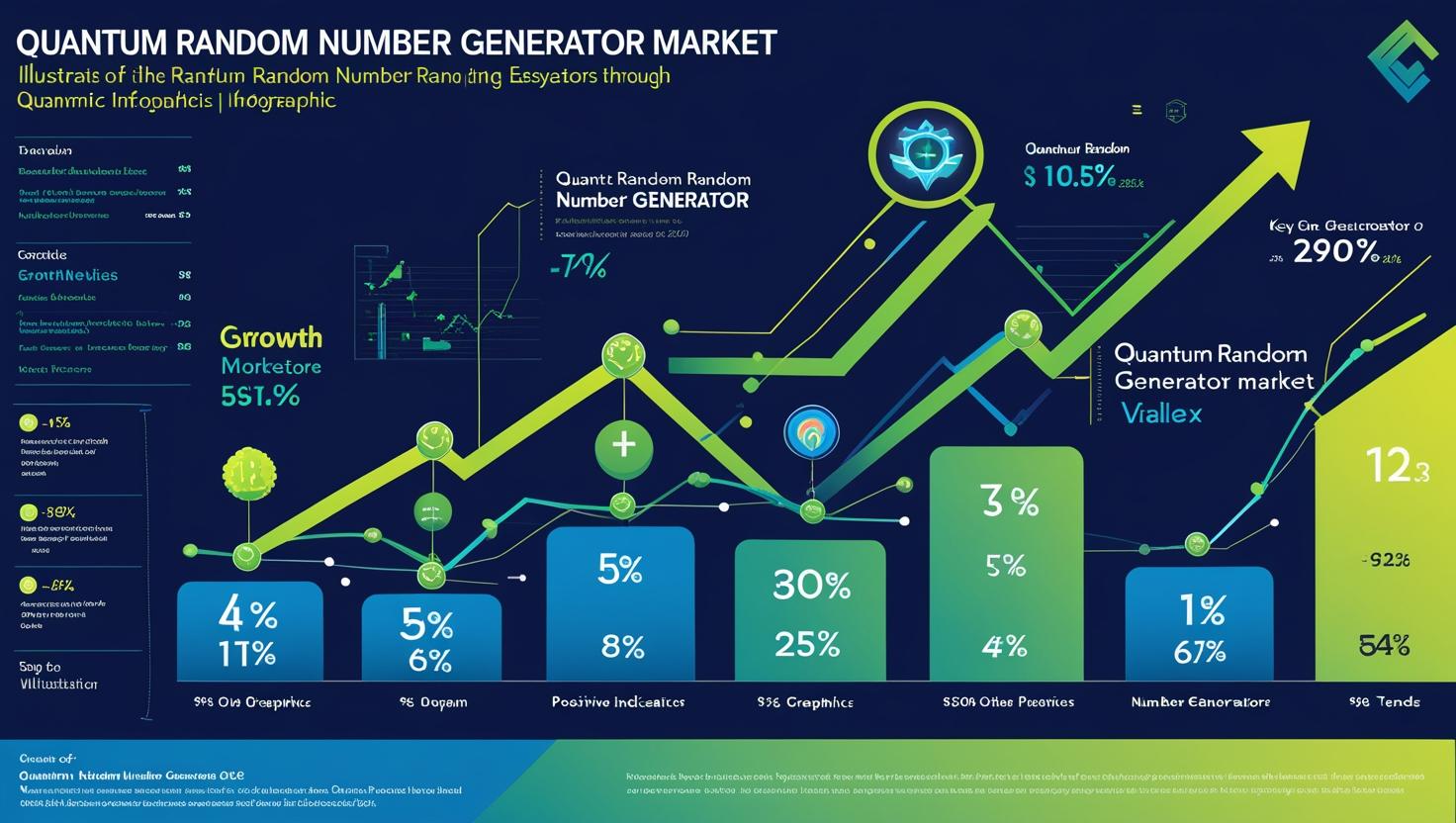In today’s hyper-connected digital world, data security and privacy have become paramount concerns for individuals, enterprises, and governments alike. As cyber threats grow increasingly sophisticated, conventional encryption methods face mounting challenges in safeguarding sensitive information. Enter the Quantum Random Number Generator (QRNG) market, a rapidly evolving sector poised to revolutionize cybersecurity through the power of quantum mechanics, offering truly unpredictable random numbers essential for next-generation cryptographic systems.
Understanding Quantum Random Number Generators
Random numbers are fundamental to encryption and security protocols, forming the basis for keys that protect data transmission, authentication, and digital signatures. Traditional random number generators often rely on algorithmic processes or physical phenomena that, while complex, can be vulnerable to prediction or manipulation by advanced attackers.
Quantum Random Number Generators leverage the inherent unpredictability of quantum phenomena—such as the quantum behavior of photons or electrons—to generate numbers that are genuinely random and impossible to reproduce or anticipate. This level of randomness significantly enhances cryptographic strength and mitigates vulnerabilities inherent in classical systems.
Cybersecurity Landscape Driving Market Growth
The surge in cyberattacks, data breaches, and privacy regulations worldwide has underscored the need for stronger encryption methods. Financial institutions, defense agencies, healthcare providers, and cloud service operators increasingly require cryptographic solutions that can withstand the computational power of emerging quantum computers.
QRNGs play a crucial role in developing quantum-safe cryptography, which aims to secure data against both classical and quantum adversaries. As governments and enterprises invest heavily in securing their digital infrastructure, demand for QRNG technology is growing at an unprecedented pace.
Technological Advancements and Innovation
Recent advancements in photonics, quantum optics, and semiconductor technology have made QRNGs more compact, reliable, and cost-effective. Developers are integrating QRNG modules into hardware security modules (HSMs), Internet of Things (IoT) devices, and cloud security platforms, broadening their applicability.
Moreover, combining QRNGs with Artificial Intelligence (AI) and machine learning algorithms allows enhanced randomness verification and real-time security monitoring, boosting confidence in cryptographic systems’ resilience.
Download PDF Brochure @ https://www.marketsandmarkets.com/pdfdownloadNew.asp?id=224265452

Expanding Applications Beyond Cybersecurity
While cybersecurity remains the primary driver, QRNGs find increasing applications in other areas requiring high-quality randomness. These include scientific simulations, gaming, lottery systems, and complex decision-making processes where fairness and unpredictability are critical.
Blockchain technology, with its need for secure consensus mechanisms and tamper-proof cryptographic processes, is also emerging as a significant market for QRNG adoption. Additionally, defense and intelligence sectors are exploring QRNGs for secure communications and encrypted data storage.
Market Dynamics and Regional Insights
North America and Europe currently dominate the QRNG market due to advanced quantum research initiatives, strong cybersecurity frameworks, and high technology adoption rates. Asia-Pacific is rapidly catching up, driven by government investments in quantum technologies, expanding tech startups, and growing digital infrastructure.
Key players in the market are focusing on strategic partnerships, R&D investments, and product innovation to capitalize on expanding opportunities. The competitive landscape includes specialized quantum tech firms, established semiconductor manufacturers, and emerging startups.
Challenges and Future Outlook
Despite the promising outlook, the QRNG market faces challenges such as high development costs, scalability issues, and the need for standardized testing and certification protocols. Integration of QRNG technology into existing IT infrastructure requires careful planning and collaboration across industries.
Nevertheless, ongoing research and technological breakthroughs are steadily addressing these hurdles. As quantum computing progresses, the urgency for quantum-secure solutions will only intensify, propelling the QRNG market toward sustained growth.
The Quantum Random Number Generator market stands at the forefront of a cybersecurity revolution, driven by the imperative to protect data in an era of evolving digital threats. By harnessing the unique principles of quantum mechanics, QRNGs offer unmatched security capabilities that traditional methods cannot match. As adoption accelerates across industries and regions, the market is set for rapid expansion, paving the way for a safer and more secure digital future.
Quantum Random Number Generator (QRNG) Market – FAQs
Q1: What is a Quantum Random Number Generator (QRNG)?
A Quantum Random Number Generator is a device that uses the inherent unpredictability of quantum mechanics—such as the behavior of photons or electrons—to generate truly random numbers. Unlike traditional methods, QRNGs produce randomness that cannot be predicted or replicated.
Q2: Why is QRNG important for cybersecurity?
Random numbers are essential for encryption. Traditional methods can be vulnerable to sophisticated attacks. QRNGs generate truly unpredictable sequences, significantly strengthening encryption and making it more resilient against both classical and quantum threats.
Q3: How does QRNG differ from classical random number generation?
Classical systems often use pseudo-random number generators (PRNGs), which rely on algorithms and initial seed values—making them theoretically predictable. QRNGs, however, derive randomness from quantum phenomena, ensuring absolute unpredictability and higher security.
Q4: What industries are adopting QRNG technology?
Key industries include cybersecurity, financial services, defense, telecommunications, healthcare, and emerging tech sectors such as blockchain and IoT, all of which require robust data protection and secure communications.
